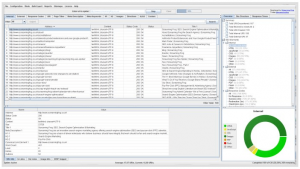— November 30, 2018
It’s common knowledge that remote working is becoming the new normal. It’s also an aspiration shared by many. In fact, over half of people think that working from home would improve their motivation, and with it their productivity.
Employers recognise this too. When structured properly, a remote working scheme can be much more efficient than having all of your workers under one roof. The most obvious saving is the need for less office space, for instance.
But if an employer suddenly decided to send their staff home one day, it would likely be a disaster. This is because, while remote working is increasingly common, it also comes with its own set of challenges. Many workers who are used to a traditional office job are simply don’t have all of the necessary skills to succeed.
That’s not to say that these can’t be learned. Indeed, even being aware of the skills and qualities necessary to be an effective remote worker will go a long way. Today, I’d like to walk you through what I think are the essential soft skills for remote working.
Self-Management
Of course, this is a very broad heading. You might want to think of self-management as the flip side of ‘flexibility’. Everyone likes to think they’re a consummate professional, but someone who’s spent their whole working life in a traditional office environment with a traditional boss figure is probably going to struggle without these things.
Obviously the language of ‘carrot and stick’ is a bit of a cliché, but there’s a certain amount of truth to it. Human beings are simple creatures, and many new remote workers simply find the temptation to goof off too hard to resist.
So what’s the solution? Well, as ever identifying the problem is the first step. For many, it will simply be a case of getting used to this new way of working. If you continue to struggle with this however, consider using a time tracking app to keep yourself on task.
Clocking Off
This one is sort of the opposite problem. It’s not unrelated though. The thing is most traditional offices close at some point in the evening, and you have to go home. When you’re working remotely, either from home or in a shared space, this is likely not the case.
That makes it much easier to slip into the habit of working late. Maybe just one more email or one more task in your in-tray. Then suddenly, your work-life balance is completely out of whack and you burn out.
There are plenty of good mental tricks to get around this. If you live with someone who works a 9-5, try and get into the habit of clocking off by the time they get home. If you don’t, try and find another milestone to let you know it’s time to stop. This could be something as simple as the 6 o’clock news or your favourite game show.
Self-Sufficiency
Don’t worry, I’m not going to tell you to start a vegetable garden. One thing which is overlooked is the fact that remote workers often don’t have the same practical support as their office-based counterparts. You’re going to have to get used to life without an office manager or IT department.
That means if you have a technical glitch, you’ll need to be able to get up and running on your own. In many cases, you’ll even be responsible for looking after your own maintenance when it comes to things like hardware and security.
The lack of an office manager can make things tricky too. Maybe you’ve never considered the work that goes into creating a good working environment. You’ll quickly see the importance of this if you have to create a work space in your own home, or source even source your own stationary.
Slightly tangentially, I’d like to highlight that you shouldn’t work in the same room you sleep in. There’s a wealth of research into how badly this can affect your lifestyle.

StockSnap / Pixabay
Communication
I don’t need to tell you that communication is important. If you work remotely, obviously you’re going to spend a lot of time either writing emails or on calls. That goes without saying. There are, however, some practical aspects of this I’d like to raise.
For example, consider is email really the best medium for your textual communication. The fact that an email carries a certain amount of formality it easier to put off responding. To many, it seems like extra work. Instead, for day to day communication with colleagues, you’re probably better off using an instant messenger like Skype or Slack.
On the subject of Skype, you’ll want to be ever-vigilant that nothing spoils your professionalism. We’ve all heard horror stories of family members wandering in or cats jumping up on keyboards. This is easy to avoid, by simply telling the people around you that you have an important call, and you need half an hour of quiet. Or if you have a cat, closing the door.
The Water Cooler
No one ever thinks they’ll miss the social aspect of working in an office. However, many remote workers report having suffered from loneliness. We’re social beings after all. If not addressed, this can have number of negative consequences, both on your productivity and your personal well-being.
Luckily, there are ways to replicate this non-professional contact with your co-workers. For example, if you’re using Slack or something similar, it only takes a few seconds to create a non-work talk channel. That way, you can get back all of the inane chit-chat you’re craving.
Of course, there are other ways to socialise during the working day without skiving off. You’re probably acquainted with other people in your area who work remotely. There’s nothing to stop you grabbing an impromptu lunch with them the same way you would with your colleagues if you were in a physical office.
Wrapping Up
My plan today was not to scare you out of the prospect of remote working. Quite the opposite. Remote working has a range of benefits, from giving you more time with your family to cutting out the need for stressful commuting. You could even swap your desk for a beach in Bali if you really want.
However, I’m nothing if not a realist. Remote working presents some new and unique challenges, which are often not considered. None of these are insurmountable though. What I’ve tried to convey today are just some of the skills and qualities which can help you overcome these.
That way you’ll be able to get all of the oft-touted benefits of your dream remote working arrangement.
Business & Finance Articles on Business 2 Community
(66)
Report Post






